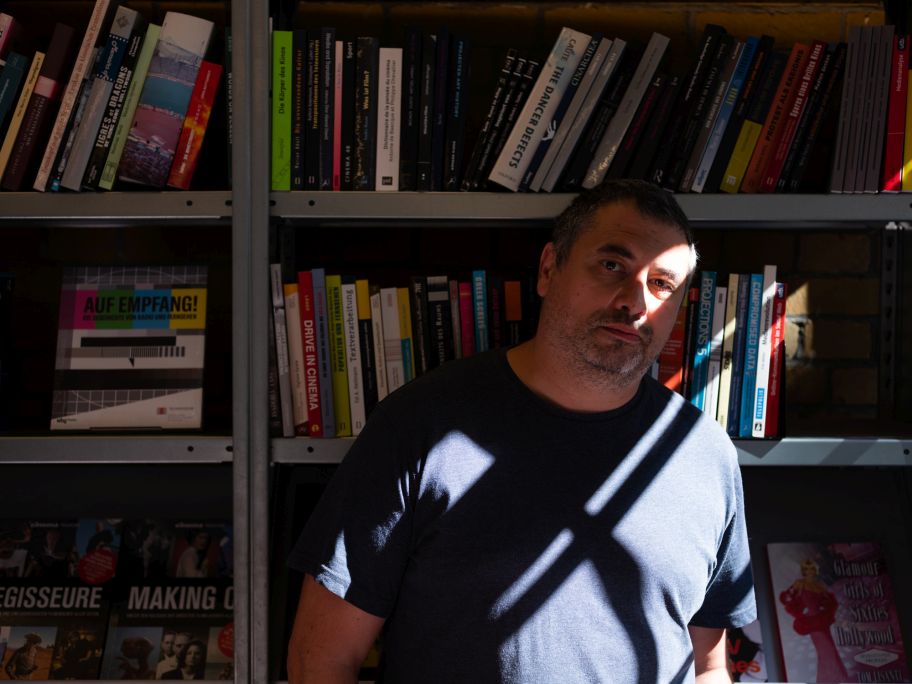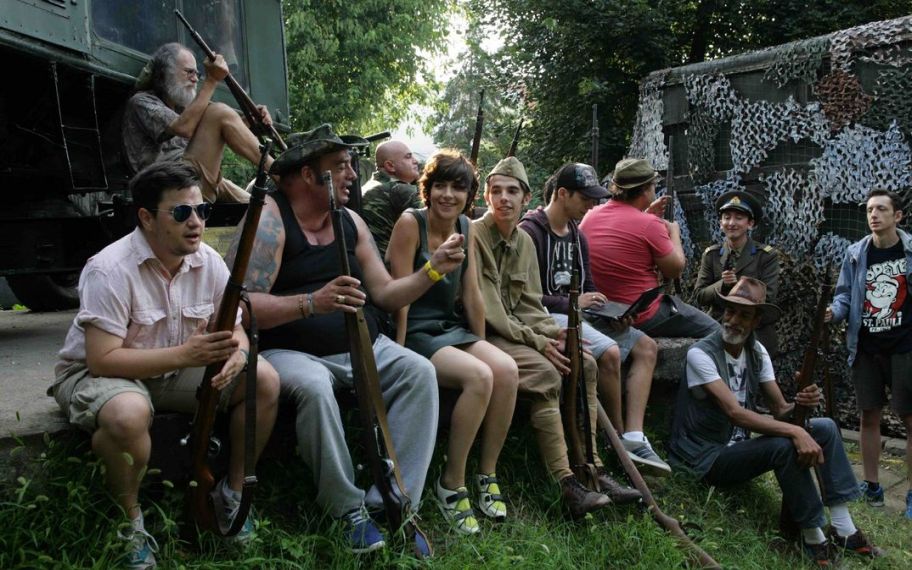Romania, Film, 2023
Radu
Jude

The rise of Romanian cinema began nearly two decades ago. It was as if a veil had suddenly been lifted, offering a clear view of auteur films on a different path than those usually seen in Europe: films with dim lighting, unsettling half-distances, dialogues without elaborate sentences, and highly precise storytelling emptied of drama. Soon the word was out: this is the Romanian Nouvelle Vague, an exciting aesthetic that ultimately won countless awards at film festivals, from a country with hardly 70 cinemas still in existence. It was an aesthetic lineage that all too quickly became a readymade, the cinematic language of a country. And all this needs to be mentioned in order to grasp why Radu Jude, born in Bucharest in 1977, stands out in such a now highly renowned cinematic landscape. Jude, who was never accepted to film school, belongs to, if it can be called this, the second generation of new Romanian directors. His body of work, now numbering over 20 films and short films, is perhaps the most complex, playful, and at times most anarchic of those seen in Romanian and likely also European cinema today.
In each of his films, Jude seeks to expand and challenge his plethora of original forms. His cinematic work is packed with experiments and ruptures. No film resembles the previous one. His visual language, his ingenuity, his cinematic as well as – it must be mentioned here – literary intelligence has no parallel in European cinema. His films have long emancipated themselves from the internationally recognized and perhaps routinely practiced aesthetics of Romanian cinema, which he so often undermines. Films by Radu Jude can be demanding satires, highly political, documentary collages, theatrical episode films, or comedies about tragic failures in communication. Many of these gleefully transcend the conventions of cinematic storytelling; they often generate a peculiar poetic excess and are at times mercilessly austere. Aferim was released in 2015, a black and white Western-style film about the circumstances of the Roma in nineteenth-century Romania. Jude doesn’t need much here: a policeman on a horse, a slave, a quasi-slapstick master-and-servant scenario that never disguises its serious content. For this he was rightly awarded the Silver Bear at the Berlinale.
Radu Jude is an intensely political director. His work addresses Romania’s involvement in the Holocaust or the violence and persecution committed by the Securitate during the Ceaușescu regime. Bad Luck Banging or Loony Porn, winner of the Berlinale’s Golden Bear, is a comedy driven by enlightened rage toward the hypocrisy of Romania’s post-totalitarian society. But for all the political earnestness borne by Jude’s films, one thing must not be overlooked: he is also a great entertainer.
Text: David Hugendick
Translation: Erik Smith


